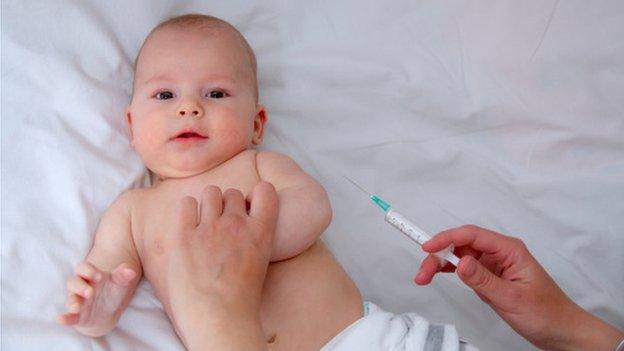Matt Dawson reveals 'two weeks of hell' over son's meningitis
- Published
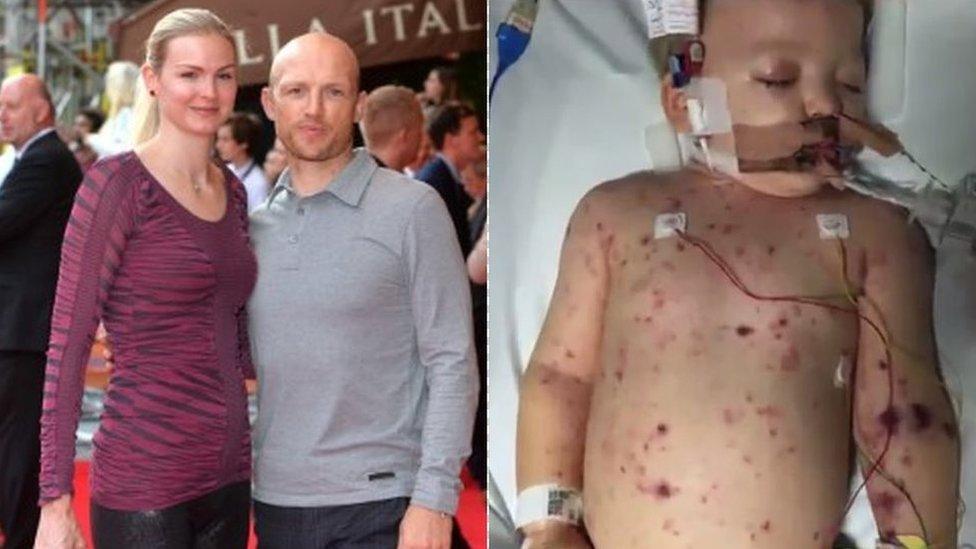
Matt Dawson and his wife Carolin Hauskeller said Sami received treatment for meningitis W135 - commonly called meningitis W
Former England rugby union captain Matt Dawson has revealed his family went through "two weeks of hell" as his two-year-old son battled meningitis W135.
Sam Dawson underwent treatment at Great Ormond Street Hospital.
The 2003 World Cup winner said he decided to speak out after a petition calling for all children to be vaccinated against the B-strain of the infection gained 400,000 signatures .
But experts warned they needed to see how effective the vaccine would be.
The campaign was started after two-year-old Faye Burdett died from the B-strain.
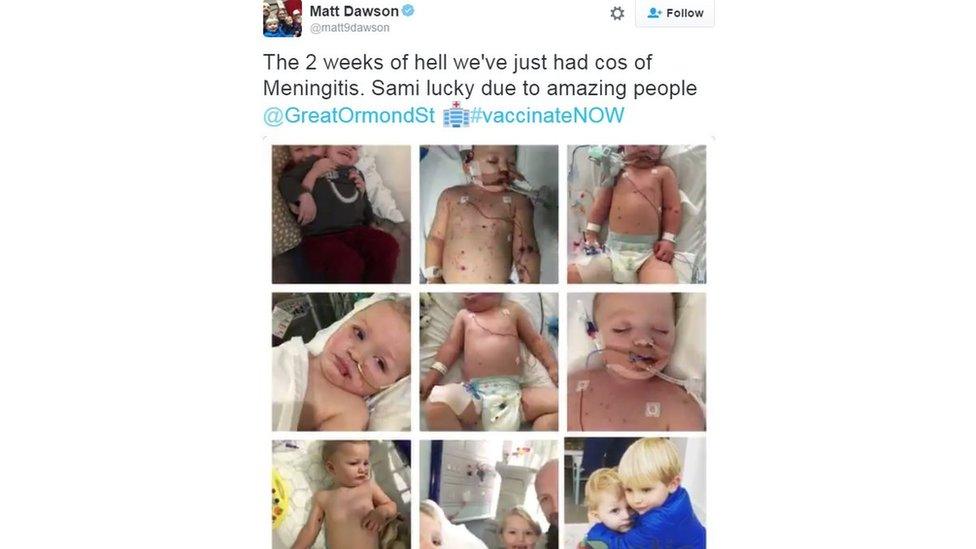
Matt Dawson published a series of pictures on his Twitter account showing his son Sam fighting meningitis W135
In a series of tweets, 43-year-old Dawson, who played for Northampton and London Wasps during his club career, said:, external "The 2 weeks of hell we've just had cos of Meningitis. Sami lucky due to amazing people @GreatOrmondSt #vaccinateNOW.
"I must also heap praise on @ChelwestFT [Chelsea and Westminster Hospital NHS Foundation Trust] for their superb A&E and recognition of Sami's disease. We're indebted.
"I ask one favour. Please read and sign so fewer kids suffer."
The government's petition website states that any petition garnering more than 100,000 signatures will be considered for debate in Parliament.
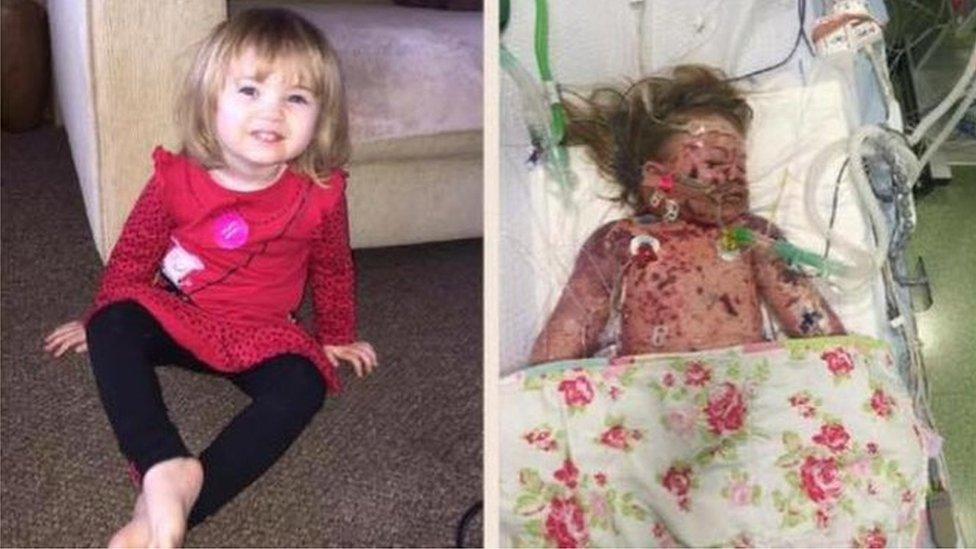
Faye Burdett was ill for 11 days before she died in hospital
Faye's story has been widely shared on social media after her mother Jenny Burdett, from Maidstone, Kent, published photos of her daughter lying in her hospital bed covered in a rash.
She said: "We campaign for change in her memory. There needs to be a roll-out programme to vaccinate all children, at least up to age 11."
Vaccine newly introduced
A vaccine to protect against meningitis B became available on the NHS for children under the age of one in September, but parents who want to have older children vaccinated must pay privately.
The UK is the first country to have introduced the Men B vaccine.
James Stuart, a visiting professor at the University of Bristol and a World Health Organisation advisor, warned: "We need to know how well the vaccine is working. So it may not be the time yet to widen the programme."
Meanwhile, Professor of infection and immunity at Great Ormond St Hospital and University College London, Nigel Klein, said: "We all hope [it] will be successful.
"However as yet we really don't know how effective it will be and if there are going to be any problems and this is a major area of ongoing research supported by the Meningitis Research Foundation."
The Department of Health said: "When any new immunisation programme is introduced, there has to be a date to determine eligibility."

What is Meningococcal Disease?
Meningococcal disease is the most common cause of bacterial meningitis in the UK
It can cause meningitis, swelling of the membrane that surrounds the brain and spinal cord and septicaemia, which is blood poisoning
There are five main types of Meningococcal Disease referred to as groups A, B, C, W and Y
It is a bacterial infection that usually affects children under the age of one. There are about 22 cases per 100,000 children in that age group
Symptoms include fever with cold hands and feet, confusion, vomiting and headaches
With early diagnosis and antibiotic treatment, most people will make a full recovery
It can be fatal in one in 10 cases - and about one in three of those who survive are left with long-term problems such as amputation, deafness, epilepsy and learning difficulties
There are effective vaccines against the different groups of meningococcal disease but, prior to September, there had not been a vaccine against group B available on the NHS
Vaccinations cannot prevent all forms of meningitis so it remains important for parents to be alert to the symptoms

- Published18 February 2016
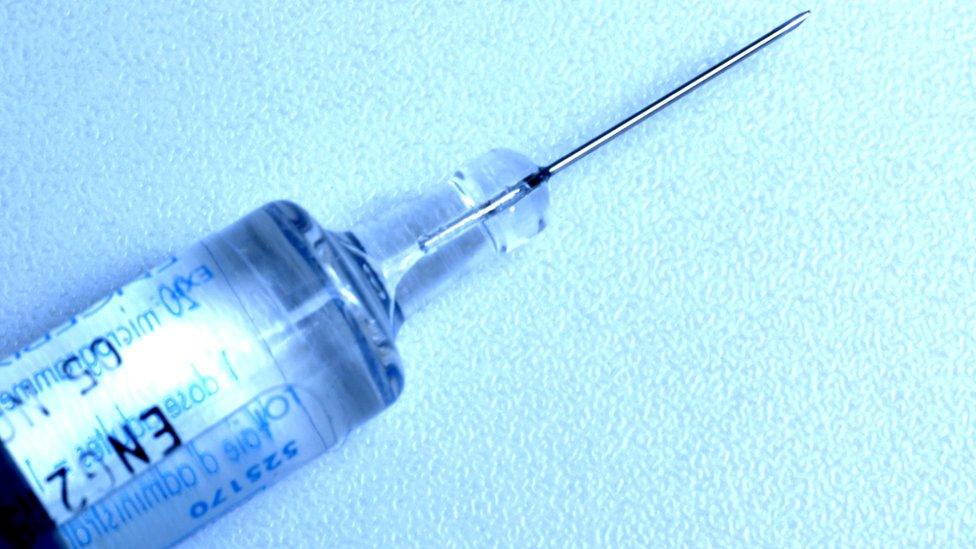
- Published17 February 2016
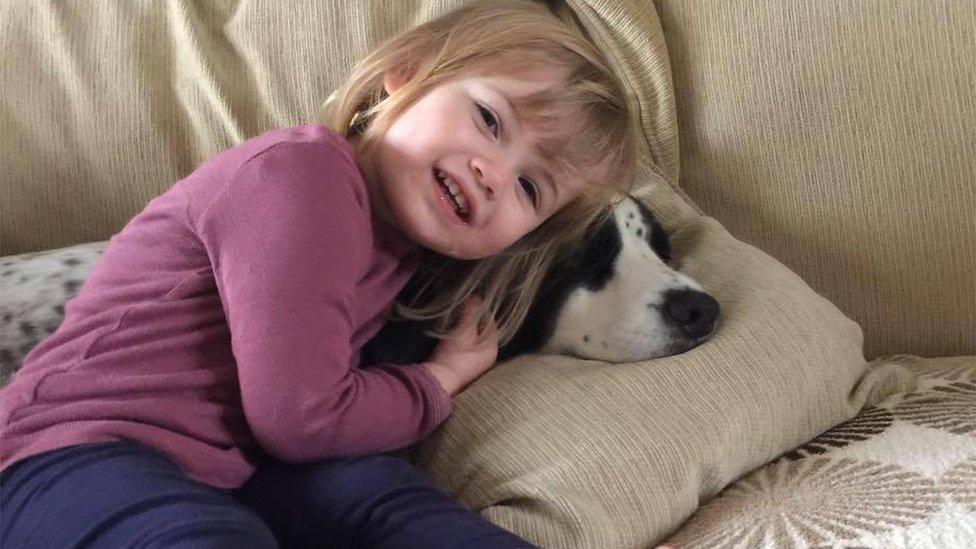
- Published17 February 2016
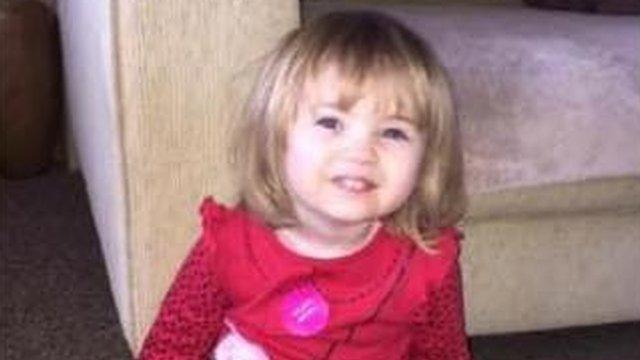
- Published18 February 2016
